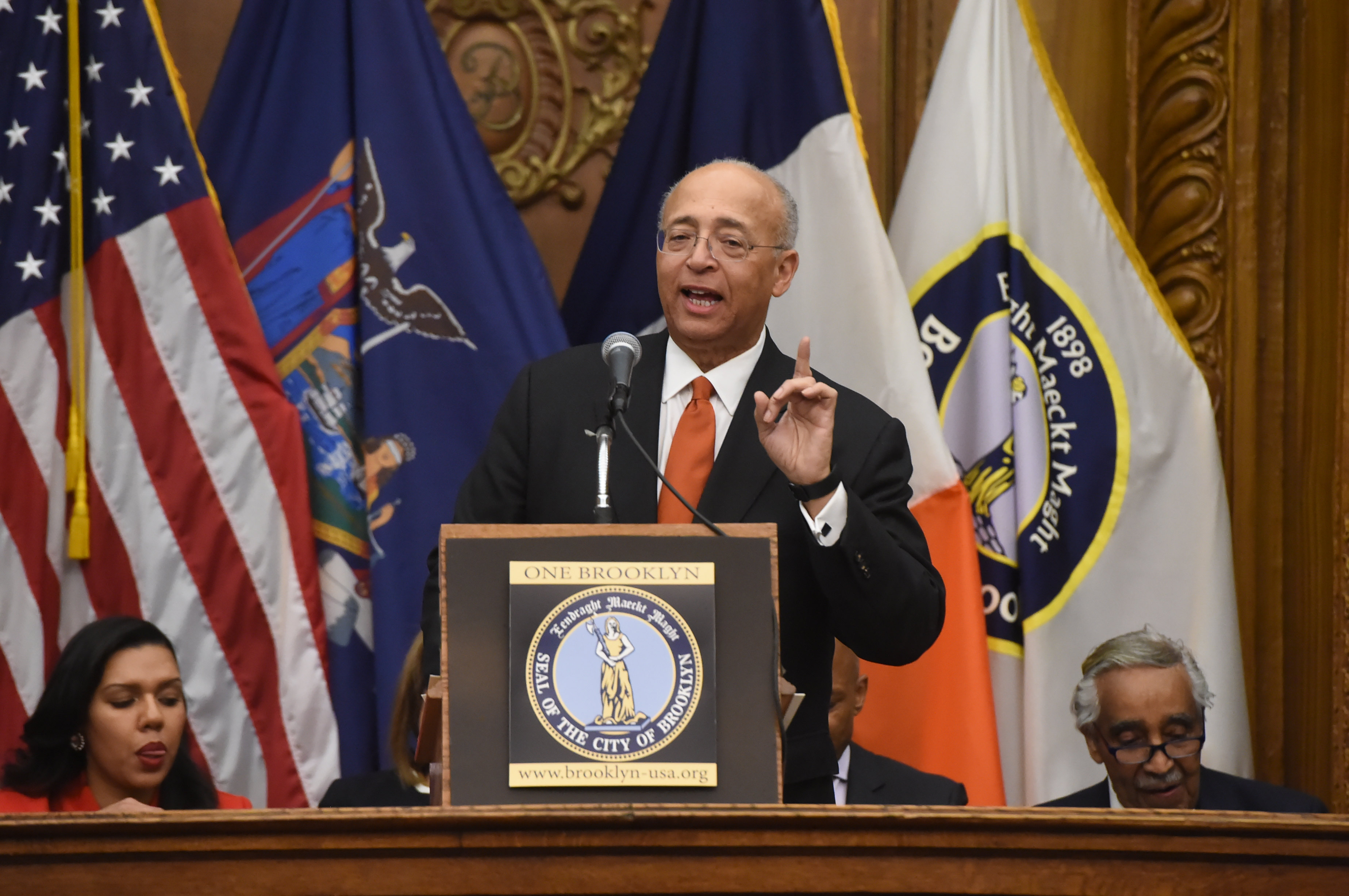Hundreds show up to Borough Hall for memorial to Justice Willie Thompson
Dozens of politicians and Brooklyn judges showed up to pay their respects

The children of Justice Willie Thompson held a celebration of their father’s life with a ceremony at Borough Hall in Downtown Brooklyn on Thursday that was attended by local politicians, judges and other members of the legal community.
“Gail and I welcome all of you to this celebration of the life of our father, William C. Thompson,” said Bill Thompson Jr. “This isn’t a wake, this isn’t a mourning, this isn’t a down event. This is a celebration.
“People say ‘A life well lived’ — well, he really lived. He was always a positive, glass-half-full type person and always wanted people to enjoy themselves,” Thompson Jr. continued. “He would be less than thrilled if we had a sad, morose event.”

Brooklyn Boro
View MoreNew York City’s most populous borough, Brooklyn, is home to nearly 2.6 million residents. If Brooklyn were an independent city it would be the fourth largest city in the United States. While Brooklyn has become the epitome of ‘cool and hip’ in recent years, for those that were born here, raised families here and improved communities over the years, Brooklyn has never been ‘uncool’.